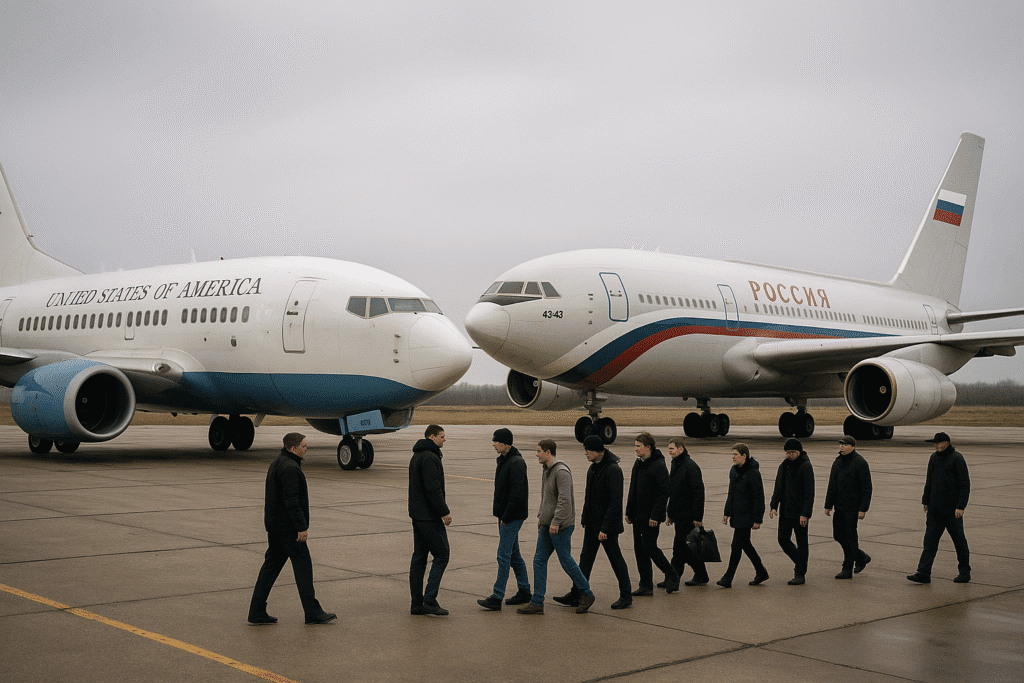A Landmark Diplomatic Breakthrough
On August 1, 2024, the United States and Russia completed a high-profile prisoner exchange, signaling a potential thaw in the strained relations between the two superpowers. The exchange, which took place at Ankara Esenboğa Airport in Turkey, involved 26 individuals, including notable Americans such as journalist Evan Gershkovich and former Marine Paul Whelan. Gershkovich had been detained in Russia on charges of espionage, while Whelan had been imprisoned for espionage and alleged misconduct.
This prisoner swap marks a significant diplomatic breakthrough, coming after months of delicate negotiations between Washington and Moscow. The talks were aimed at easing the mounting tensions that have characterized U.S.-Russia relations, particularly in the wake of the ongoing conflict in Ukraine, cybersecurity concerns, and diplomatic expulsions.
A Step Toward Diplomatic Cooperation
The release of Gershkovich and Whelan was hailed by their families, human rights groups, and international observers as a victory for diplomacy. For their families, the emotional relief was immense, as they had long advocated for their loved ones’ release from what many considered unjust detentions. Human rights organizations also welcomed the exchange as a positive step in addressing the human toll of ongoing diplomatic conflicts.
However, while the swap provided a moment of cooperation between the U.S. and Russia, it has also raised concerns. Critics of the exchange argue that it does not go far enough in addressing the broader geopolitical issues between the two nations. Some fear that such exchanges could set a problematic precedent, where political leverage is gained through the detention of individuals and their eventual release in exchange for other prisoners. These concerns underscore the complexity of using prisoner exchanges as a tool in diplomatic negotiations.
Continuing Diplomatic Challenges
U.S. Secretary of State Antony Blinken confirmed that the American government remains committed to pursuing further diplomatic discussions with Russia on a range of issues, including arms control and the ongoing situation in Ukraine. While the prisoner exchange was seen as a positive sign of potential cooperation, Blinken emphasized that the broader diplomatic challenges remain unresolved. The conflict in Ukraine, cybersecurity threats, and other tensions will require more comprehensive efforts to address long-term stability between the two nations.
Global Implications and Long-Term Impact
International observers are closely monitoring the long-term effects of this prisoner swap on U.S.-Russia relations. While the exchange is undoubtedly a positive step, many experts caution that it should not be seen as a quick fix for the broader challenges facing the relationship between the two countries. The geopolitical standoff, including disagreements over Ukraine and arms control, continues to be a significant source of friction.
The success of this prisoner exchange may provide an opportunity for further diplomatic initiatives, but experts believe it will require sustained efforts and open channels of communication to stabilize relations in the long run. While this breakthrough serves as a reminder of the potential for cooperation, it also highlights the complexity of U.S.-Russia diplomacy, where one positive event does not guarantee resolution of deeper and more enduring issues.
